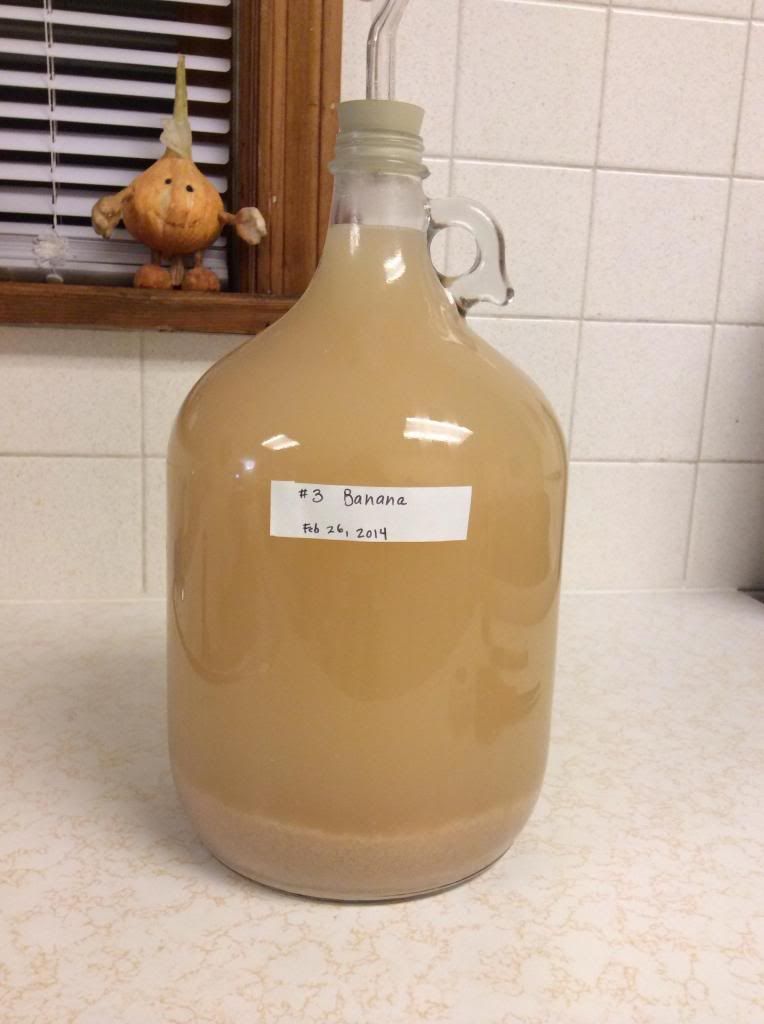Hi all, I'm new to winemaking and I just brewed up a one gallon batch of this last week. It's doing great so far. I used organic bananas to minimize pesticides on the peels and I let them ripen until they were just about black. They must have had a lot of sugar because the SG ended up being way too high when I added the recommended amount of sugar in the recipe. Oops. I wasn't intending to make Banana Rocket Fuel. I diluted it down with water and now I'm hoping I didn't also dilute out the banana flavor too much.
Here's a pic. I just racked it and it has a nice banana smell. The color is a cloudy beige at the moment. Looking forward to tasting it one day!

Do you know what your starting gravity was? It's normal for wines to start in the 1.090 range. Also, if you let this age for awhile, the alcohol bite should mellow out some.


















































![Craft A Brew - Safale S-04 Dry Yeast - Fermentis - English Ale Dry Yeast - For English and American Ales and Hard Apple Ciders - Ingredients for Home Brewing - Beer Making Supplies - [1 Pack]](https://m.media-amazon.com/images/I/41fVGNh6JfL._SL500_.jpg)







